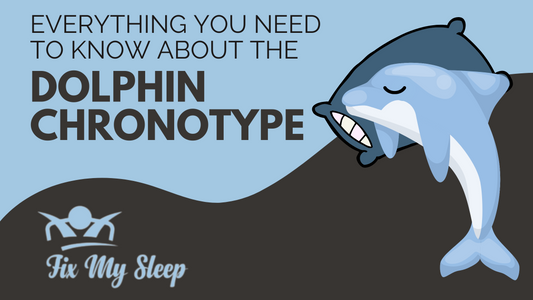One thing that a lot of people do not get enough of is sleep. You cannot overlook just how important sleep is to your health and wellbeing. If you do not get sufficient sleep, not only can this result in you feeling tired and groggy the following day, but it can end up causing significant health problems if it becomes a persistent problem.
There are lots of different types of sleep disorders that people can experience. Examples include the following:
- Sleep Apnea - This condition will cause your airway to shut while you are asleep. You may gasp, snort, or snore, and then your normal breathing pattern returns.
- Restless Leg Syndrome - People with the condition feel like they need to move their legs at night.
- Sleep-Related Movement Disorders - Do you sleepwalk? If so, your condition is likely to fall into this category.
- Circadian Rhythm Disorders - This condition applies to those who have a disrupted sleep-wake cycle.
- Narcolepsy - With narcolepsy, sufferers of this condition experience powerful and sudden sleepiness.
- Insomnia - If you are someone who finds it incredibly difficult to fall asleep or remain asleep, you have insomnia.
- Hypersomnia - Finally, we have hypersomnia, which is applicable to people who feel sleepy all of the time.
What causes a sleep disorder?
There are a number of possible sleep disorder causes, with some people experiencing issues due to another medical condition they have been diagnosed with. In fact, all of the following conditions have been linked with sleep disorders:
- Clinical depression
- Anxiety
- High blood pressure
- Parkinson’s disease
- Diabetes mellitus
- Asthma
- Sinus and nasal inflammation
Despite this, there are usually non-medical factors that cause a sleep disorder. Examples of such factors are as follows:
- Dietary choices
- Stressful circumstances
- Lifestyle factors
- Poor sleep habits
It is vital to pay attention to what could be causing the sleep problems you are experiencing before assuming that you have a bigger issue at play.
What are the signs that you may have a sleep disorder?
There are a number of different signs and indications that you may be suffering from a sleep disorder. If you notice any of these signs, it is important to get in touch with a medical professional as soon as possible:
High blood pressure
One indication that you could have a sleep disorder is if your blood pressure levels are high. This is definitely something you need to act on because elevated blood pressure can heighten your risk of a stroke or a heart attack, particularly if cardiovascular symptoms, such as arrhythmia, are not treated.
Weight gain
Another sign that you could have a sleep disorder is if you have experienced weight gain as of late. This could be a result of a metabolic disorder. Sleep disorders can actually heighten your risk of diabetes and insulin resistance.
Drowsiness when driving
If you feel drowsy when you are driving, this could be an indication that you are suffering from one of the sleep disorders mentioned above, especially if you have a daily driving routine that means you are on autopilot. Of course, we must stress that if you are driving while feeling drowsy, it is incredibly dangerous, which is why it is critical to seek treatment as early as possible.
Daytime sleepiness
If you have any sort of daytime sleepiness, this could be an indication that you have an issue like sleep apnea, which can make you feel mentally fatigued and irritable. If you find that you are constantly grabbing the caffeine to try and keep yourself awake during the day, it is likely that you’re battling problems that happen while you are asleep.
Making noises while sleeping
Last but not least, another sign that you could have a sleep disorder is if you make loud noises while you are sleeping, such as gasping, breathing, and loud snoring. This tends to indicate that there is something that is interfering with your sleep.
The impact of sleep problems
- Serious health issues – Sleep deprivation can be the root cause of many health problems, putting people at risk of diabetes, a stroke, high blood pressure, irregular heartbeat, heart failure, heart attacks, and heart disease. It is believed that nine in ten people that suffer from insomnia also have another type of health condition.
- Negative effects on the brain – A lack of sleep impacts your ability to learn and think as effectively as you should be able to. It impairs problem-solving, reasoning, concentration, alertness, and attention. Moreover, if you do not get the sleep you need, you will not be able to remember what you experienced and learned during the day.
- Increased risk of accidents – There are many studies that prove a lack of sleep or poor quality sleep is to blame for road traffic accidents and injuries in the workplace.
- Decreased sex drive – Both women and men that do not get enough sleep have less interest in sex and report low libidos. The reason for this is usually because of increased tension, sleepiness, and depleted energy.
- Memory Loss – You will struggle to keep your memory sharp if you do not get enough sleep. French and American researchers combined to study this. They discovered that memory is strengthened as a result of sharp-wave ripples, which transfer learned information to the brain’s neocortex from the hippocampus. The reason your memory suffers after a poor night’s sleep is that the sharp-wave ripples usually happen during your deepest sleep levels.
Final words on the signs that you could have a sleep disorder
So there you have it: an insight into some of the clear signs that you could be experiencing a sleep disorder at the moment. If you have noticed any of the signs that we have mentioned above, it is important to get in touch with a professional as soon as possible so that you can get the help and assistance required to get to the bottom of the sleeping order you are experiencing.





